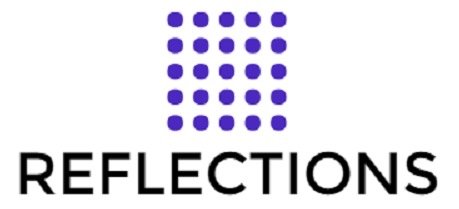What LGBTQ History Month Means to Me
International Women’s Year Conference Button
What LGBTQ History Month Means to Me
I didn’t realize that October was LGBTQ History Month until it was mentioned by my minister, the Reverend Nancy Reid-McKee, at the start of this morning’s worship service at Northlake Unitarian Universalist Church. Having our services on Zoom for the past 19 months has allowed me to be easily distracted, allowing me to do a quick online search concerning the difference between Pride Month in June and LGBTQ history month in October. I was slated to be one of the speakers at today’s service, talking about my beliefs and my search for ethical guidance. I quickly decided to add a reference to gay rights to my script. After I completed my part of the service, I realized there was much more I could say about my personal history regarding LBGTQ issues. Here’s my story:
From childhood through college and early adulthood I did not have much cause to contemplate gay rights. I knew no one who was openly gay and had not been in a situation that required me to deal with sexual orientation issues. That all changed over the week-end of July 9-10, 1977, when I attended the Washington State Conference for International Women’s Year. You can read a history of that event on the HistoryLink.org website. Returning home, I needed to connect with my Christian beliefs and heritage, which I attempted to do by attending a worship service at the local Presbyterian Church.
The conference attendees were split almost equally between those who followed scripts provided by leaders of the Catholic and Mormon Churches, with male sign-holders directing how they should vote, and about 2000 other women, from many different organizations, who agreed on support for the Equal Rights Amendment but otherwise did not share the same priorities. Those who actively opposed the Equal Rights Amendment identified themselves as “Christian Women,” always implying that none of the rest of us should be considered Christian. Among the many groups of women present was one identifying itself as “Radical Women,” which was outspoken in advocacy of gay rights. In order to counter the positions pushed by the male leaders of the “Christian Women,” all the other groups needed to unite on the positions they supported and the individuals they voted for to be delegates to the national conference. Most of us disagreed on some of the issues, but the “Radical Women” were unwilling to compromise on their platform. Complicating my experience was the presence of a favorite high school teacher as an active participant with the “Radical Women.” We had stayed in touch after I left high school and, I thought, continued to have a strong relationship. Although she had to have seen me, she never acknowledged knowing me and never spoke to me. It was the first time I had confirmation that she was gay. In the end, the non-Mormon and non-Catholic participants did unite enough to successfully elect their delegates to the national conference. As I left for home at the end of the day, I was exhausted by the emotional roller-coaster of the event, and felt I’d gone through a major shift in my understanding of the conflicts within society on various social issues and my personal priorities.
The next day I attended the Presbyterian Church I had been loosely affiliated with after moving away from the church of my school years. I was not a member of the church because, when I attended their new member classes, I discovered they had a strong preference for the literal interpretation of stories in the Bible and were not interested in considering other ways of understanding the verses we studied. While I found the class interesting, I was not comfortable joining a church with such a narrow religious focus. Nevertheless, having no other nearby church home, I continued to attend their services periodically and went there the Sunday after the Women’s Conference. I was alarmed and shaken to discover that the focus of the service related to gay rights and not in a good way. The speaker viewed gay sex as sinful and feedback from the congregants made clear that the general attitude was that discrimination against gays was a good thing. I left early and quickly realized that was the end of my association with the Presbyterian Church.
It took me awhile to become a Unitarian Universalist. I had visited UU Churches a few times over the years. I always enjoyed reading the informative pamphlets they had displayed in the church foyer and found the services engaging. However, the churches I’d visited were always in an inconvenient location and often just a little too non-traditional for me. For several years I was a member and active participant at the local United Church of Christ. However, a serious conflict developed there, which pushed me finally to join the UU Church. My husband became involved before I did. The church had a Camera Club that he participated in and which gave him a chance to get acquainted with members before joining the church itself. We both joined the Saltwater UU Church in 1981, when our son was 2-years-old, and then transferred to Northlake UU Church in 1997, when we moved to Kirkland, while also participating sporadically in the services and activities of the Eastshore Unitarian Church in Bellevue.
My personal history is tied up with LGBTQ history is one other way. You can read that story on a separate blog page entitled Partner Wedding Ceremonies. The time I spent doing wedding ceremonies for same sex couples was both fun and very gratifying. It solidified my support of LGBTQ rights, which began back at that International Women’s Year Conference I attended in 1977.


